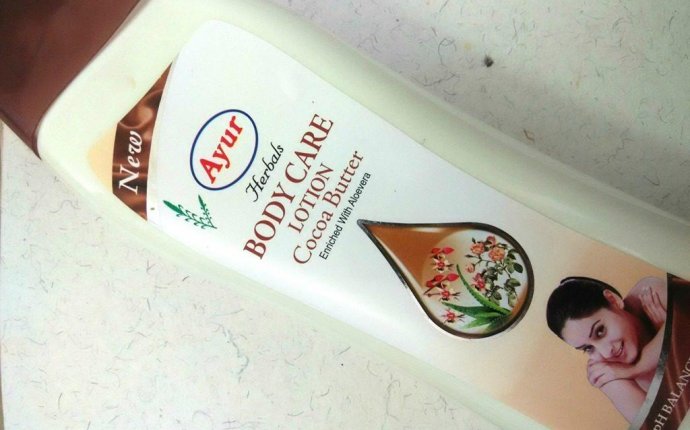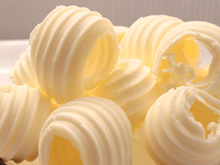
Butter Ayurveda
 Dictionaries define butter as “a solid emulsion of fat globules, air, and water made by churning milk or cream and used as food”. Butter is known as “Navaneeta” in Sanskrit. It is referred as navaneeta in texts of ayurveda too. Butter is usually made from cow’s or buffalo’s milk. But it can be made from milk of other mammals like sheep, goats, camel etc.
Dictionaries define butter as “a solid emulsion of fat globules, air, and water made by churning milk or cream and used as food”. Butter is known as “Navaneeta” in Sanskrit. It is referred as navaneeta in texts of ayurveda too. Butter is usually made from cow’s or buffalo’s milk. But it can be made from milk of other mammals like sheep, goats, camel etc.
Texts of ayurveda consider butter prepared from milk of cow, buffalo and sheep for medicinal use. The health benefits of butter are very well explained in ayurveda.
Butter prepared from cow’s milk has the following medicinal properties.
• It acts as a body coolant.
• This butter nourishes body tissues and increases body energy level.
• The complexion of skin and strength of body increases when butter is consumed.
• Butter increases appetite.
• It alleviates vata and pitta.
• Very effective in piles or hemorrhoids.
• Reduces cough.
• Elderly people and infants are benefited by butter. It acts like an elixir when administered to infants and elderly.
Butter prepared from buffalo’s milk has the following medicinal properties
• It increases vata and kapha.
• Butter prepared from buffalo’s milk is heavy to digest.
• Consumption of this butter alleviates pitta, burning sensation and tiredness.
• It increases quality and quantity of semen.( increases sperm count and motility)
• Body fat or medha dhatu gets increased by consuming this regularly.
Butter prepared from sheep’s milk alleviates vata, pitta and kapha and is superior to all other types of butter.
Sheep milk is treasure of nutrients. It is richer in vitamins A, B, and E, calcium, phosphorus, potassium, and magnesium than cow milk. The chains of fatty acids in sheep milk have many health benefits. They have little effect on blood cholesterol level of humans. It is easy to digest fat portion of sheep milk.
Mix pure turmeric powder with the butter preparaed from cow ghee. This mixture when massaged on body enhances fairness, eases wrinkles and prevents dry skin.
Health Note:
• If you have atherosclerosis, heart disease, high cholesterol ( hypercholesterolemia) in the upper range 200-239 mg/dL or high triglycerides (hypertriglyceridemia), the American Heart Association recommends a maximum daily limit of 200mg of dietary cholesterol, and advises no more than 7 percent of calories be eaten in the form of saturated fat.
• A new study shows that exposure to a chemical called diacetyl, a component of artificial butter flavoring, can be harmful.














